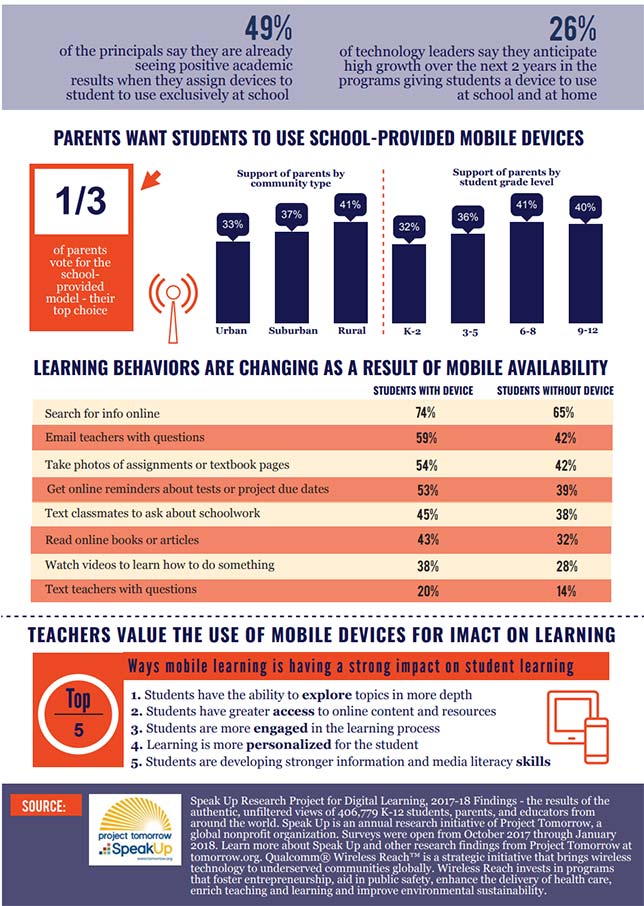Equity Problems with Technology Persist Despite Adoption Gains
More teachers are requiring students to use assigned devices in their classrooms, but a new report finds inconsistencies with technology adoption in class and at home.

When it comes to preparing students for the future, two-thirds of parents endorse the idea of digital tools in the classroom, but 51 percent of parents are concerned that technology varies too much from teacher to teacher, class to class or subject to subject, according to a new report.
These findings come from the Project Tomorrow's 2017 Speak Up Research Project for Digital Learning, which surveyed 340,927 students, 34,833 teachers and 23,159 parents. The report was released at a Sept. 12 Congressional briefing where students, teachers and administrators spoke about how they use technology in their classrooms. The survey was conducted between October 2017 and January 2018.
"Our real objective is to be an engine of change in schools and districts. We want to stimulate new ideas in schools and districts. We want to have actionable knowledge that people can use," said Julie Evans, CEO of Project Tomorrow and lead researcher on Speak Up.
According to Project Tomorrow:
- 43 percent of school administrators think the implementation of digital content is an effective tool to establish equity in their classrooms, schools and school districts.
- 60 percent of schools have adopted a 1-to-1 mobile device program for in-school usage.
- 44 percent of principals think ensuring student access to technology outside of school is a major challenge today.
- And 13 percent of students in grades 6–12 sometimes can't do homework because they lack internet outside of school.
"The rise in awareness in the homework gap was particularly interesting because we know that for schools and districts to do something they first have to be aware of the problem," Evans said. "We are definitely starting to hit a tipping point in terms of districts being aware of this problem."

The complete report can be downloaded for free on the Speak Up website.
About the Author
 Sara Friedman is a reporter/producer for Campus Technology, THE Journal and STEAM Universe covering education policy and a wide range of other public-sector IT topics.
Sara Friedman is a reporter/producer for Campus Technology, THE Journal and STEAM Universe covering education policy and a wide range of other public-sector IT topics.
Friedman is a graduate of Ithaca College, where she studied journalism, politics and international communications.
Friedman can be contacted at [email protected] or follow her on Twitter @SaraEFriedman.
Click here for previous articles by Friedman.